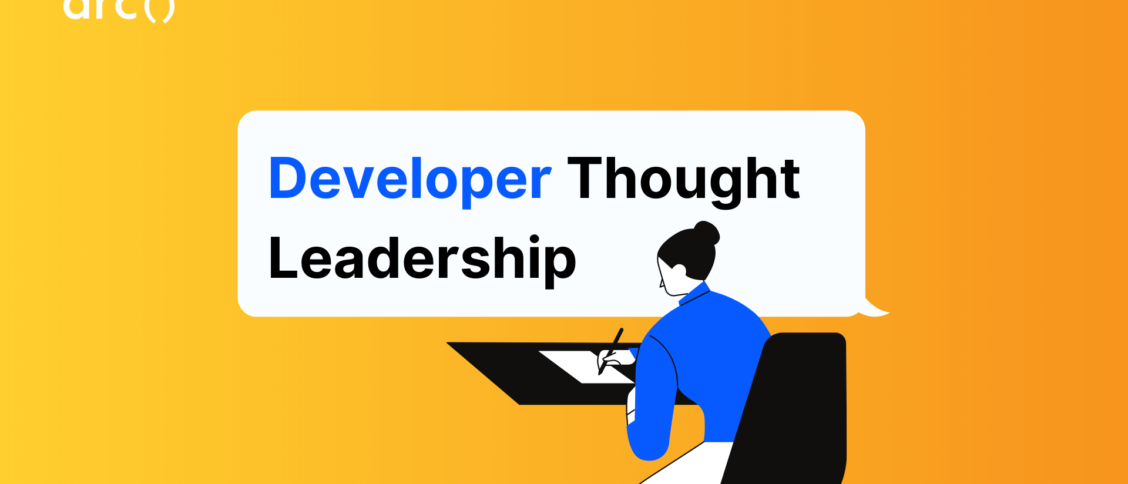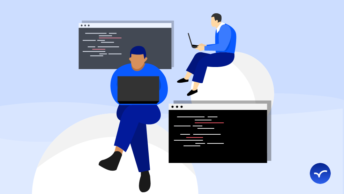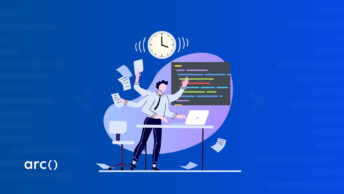As a developer, should you be posting on social media?
Where should you post? What should you post? And, most importantly, why should you post?
The first question is easiest to answer. In short, yes, you should be posting, certainly if you want to make changes in your career.
If you’re happy in your current position, that’s fine, too, but there are still reasons to post. Another point is when you do take the decision that it’s time to make a change, you’ll wish you started posting sooner.
For now, let’s take each of those questions in turn, but answer them in reverse order in an attempt to reverse-engineer it. After all, as developers, we just love to reverse-engineer things!
Looking to hire the best remote developers? Explore HireAI to see how you can:
⚡️ Get instant candidate matches without searching
⚡️ Identify top applicants from our network of 300,000+ devs with no manual screening
⚡️ Hire 4x faster with vetted candidates (qualified and interview-ready)
Try HireAI and hire top developers now →
Why Share?
Giving back to the community and helping others who might wish to follow your path or success is the altruistic reason. It is valid and can be incredibly rewarding but — for now — I want to focus on some of the more selfish reasons.
We are always learning, growing and tackling new challenges in the software industry. Every day is a sequence of hurdles. Don’t you ever wish you had written down what you had learned before it vanished like a bug reported on the live system when you run it on your local code?
Documenting your learning can be a great way to cement in the knowledge you have acquired each day — and also plays well into the altruistic side so that others can benefit from your findings.
Perhaps your explanation will help someone get there faster and without all the stress you endured.
When it comes to job hunting, there are usually applicants with similar skill sets to yours applying for the same role. Standing out is a challenge. One of the most effective ways of standing out is to demonstrate a passion for the field or technology.
If you have a long-running log of your learnings, studies, and practice then the passion is evident. (This is also key for self-taught developers!) This is why it pays to start early: so when you do wish to move, you have a body of evidence to assist you.
Read More: 5 Great Ways to Get Your Profile Noticed as a Software Engineer
Document Over Create
The mention of documenting your daily toils was not a phrase used by chance. Gary Vaynerchuk has long championed the phrase “Document, don’t create” to assist content creators in generating ideas.
To create new ideas all the time is difficult. To document what you do each day is easy and valuable to others like you. Take this mantra and apply it to your coding. You’re not trying to become an influencer. You’re collating evidence so that when a recruiter or employer wants you to bolster your application with evidence of experience and passion, you have all of this data to hand.
With this an evidence collating approach in mind, you do not need to worry about production quality. You’re not trying to become a novelist. It’s more like journaling.
Where To Share
Sharing anywhere is good because sharing is better than not sharing. However, I would urge you to consider your audience and where they hang out.
In this instance, you’re probably trying to entice employers and recruiters and they hang out on LinkedIn. Burying your content in some dark, developer space is cool, but less likely to get seen by the people it is intended for. If you must blog in a developer space for your sanity, make sure you’re also sharing it with your intended audience!
One great trick is to not put your content in full-size LinkedIn articles, but to instead keep the content short and deploy it in posts. People are less likely to click through to articles and it’s a good way of ensuring your content is bite-sized and easily digestible.
Read More: Here’s When You Can TRULY Call Yourself a “Senior” Software Developer
Haters Gonna Hate
When you start posting, it’s not going to be plain sailing. Firstly, it takes time to build an audience (if you want one) and it can be demoralizing when viewing figures are down. Remember, you’re not here to be an influencer. At least, not yet, anyway. You’re here to show leadership, thought leadership, that is.
The next thing is the haters. Negative comments and reactions are inevitable. It’s a cruel world out there. Don’t take it personally and try to see any engagement as positive. Either learn from what the person is saying or move on. Everyone is entitled to an opinion. Say thank you and keep going!
The good news is that most people in the world are nice. Repeat that phrase back to yourself. The silver lining is when you put your head up above the parapet in this way, good things can happen. From personal experience, I have received job offers very quickly after working this way as my profile stood out immediately.
From the moment I started producing content, I was contacted by friends and acquaintances. I had comments that I was embarrassing myself.
I was mocked quite a lot at first. Then the job offers rolled in and everyone went quiet.
It was difficult, at first. Today, it’s my go-to advice when I help junior developers looking to move up, and some of those that mocked me have since followed suit. It’s a powerful strategy.
When producing content, you don’t have to be limited to the written word. Use what works for you. The same rules apply: document what you’re learning or working on and keep it bite sized. This way it is more likely to be read, viewed or heard.
It’s also a good strategy to ensure that producing it is not too much work and is, therefore, sustainable. Consistency is key. Find a cadence that works for you and stick to it. Start slow but the more you commit to it, the easier it will become. You will find a rhythm.
Don’t expect the world to light up with each post. You’re not starting this for fame, remember? You’re building up evidence and it takes time. Expect people to disagree. That’s great! Have a conversation. Now you’re networking!
Read More: Here Are 8 Remote Work Benefits and WFH Advantages to Consider
Let’s Recap
A quick recap before we’re done? What about those questions?
Should you be posting on social media? Yes!
Where should you post? Anywhere, but preferably post where your audience gathers. LinkedIn is a great option.
What should you post? Document your daily challenges and learnings. Even the failures. Everyone struggles, but you’ll be documenting the challenges and, eventually, how you overcame them. Great stuff!
Why should you post? This is the best way to stand out. You’re not just a software developer who uses language X or framework Y. You’re a passionate coder who lives and breathes this stuff and the evidence is there for the world to see. It’s almost impossible to say no to the next stage of the hiring process, the interview, but I’ll save that subject for another time
Have you had success — or failures — with posting on social media as a software developer? Let us know in the comments below!
You can also explore HireAI to skip the line and:
⚡️ Get instant candidate matches without searching
⚡️ Identify top applicants from our network of 250,000+ devs with no manual screening
⚡️ Hire 4x faster with vetted candidates (qualified and interview-ready)








